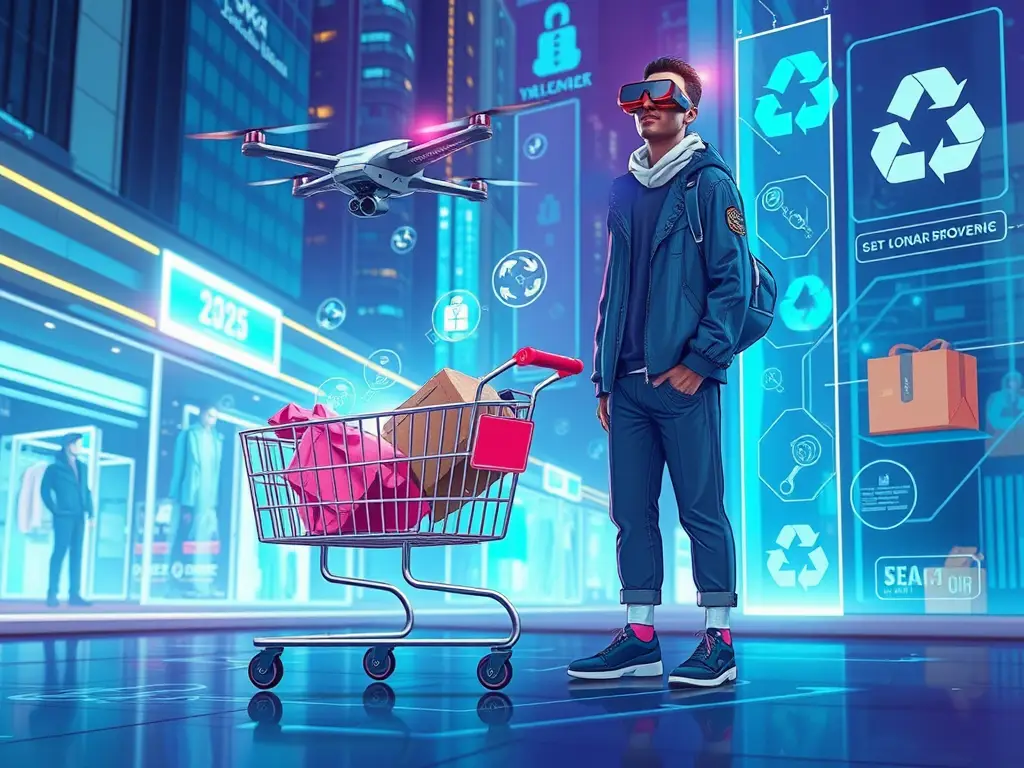
The Future of Online Shopping: What to Expect in 2025
Introduction
The world of online shopping is evolving at an unprecedented pace. In just a few decades, it has transformed from a convenience to a necessity, with technologies like artificial intelligence (AI), augmented reality (AR), and blockchain paving the way for a more immersive and efficient shopping experience. As we approach 2025, what can consumers and businesses expect from the future of e-commerce? This article delves into the top trends and innovations set to redefine how we shop online.
The Rise of AI and Personalization in E-Commerce
AI has already made significant inroads in online shopping, and by 2025, its role will be even more pronounced. From product recommendations to customer service, AI will provide:
- Hyper-Personalized Shopping Experiences: Algorithms will analyze user preferences, purchase history, and even real-time behavior to curate tailored product suggestions.
- Voice Shopping: Virtual assistants like Alexa and Google Assistant will simplify purchases, enabling users to shop hands-free.
- Advanced Chatbots: AI-powered chatbots will offer seamless customer support, handling everything from inquiries to troubleshooting.
Example: Amazon’s AI-driven recommendation engine has already increased sales significantly. By 2025, this model will be even more refined, driving customer satisfaction and loyalty.
Augmented and Virtual Reality: Bridging the Gap Between Physical and Digital
One of the challenges of online shopping is the inability to physically interact with products. AR and VR are set to change this:
- Virtual Try-Ons: AR apps will allow customers to “try on” clothes, glasses, or makeup from the comfort of their homes.
- Immersive Storefronts: VR platforms will create digital storefronts where users can browse and interact with products as they would in a physical store.
- Home Visualization: Furniture and home decor brands will use AR to help customers visualize how items will look in their space.
Infographic Suggestion: A visual showing the difference between traditional e-commerce and AR-enhanced shopping experiences.
Sustainability and Ethical Shopping
Consumers are becoming increasingly conscious of the environmental and social impact of their purchases. By 2025:
- Eco-Friendly Practices: E-commerce platforms will prioritize sustainable packaging and carbon-neutral shipping options.
- Transparency: Blockchain technology will provide traceability, ensuring that products are ethically sourced.
- Circular Economy Models: Brands will embrace buy-back and recycling programs to reduce waste.
Case Study: Patagonia’s Worn Wear initiative is an excellent example of a circular economy model that could become mainstream.
Faster and Smarter Delivery Systems
The demand for instant gratification will push companies to innovate their logistics:
- Drone Deliveries: By 2025, drones will handle a significant portion of last-mile deliveries, reducing delivery times and costs.
- Smart Warehousing: Automated warehouses will use robotics and AI to streamline inventory management and order fulfillment.
- Micro-Fulfillment Centers: Smaller, strategically located hubs will enable same-day or even one-hour delivery services.
Graph Placement: A chart comparing delivery speeds from 2020 to projected speeds in 2025.
The Integration of Social Commerce
Social media platforms are becoming e-commerce hubs, merging content and shopping seamlessly:
- Shoppable Posts: Instagram and TikTok will lead the charge with features that let users purchase directly from posts or videos.
- Live Shopping Events: Influencers and brands will host live streams where viewers can interact and shop in real time.
- Community Engagement: User-generated content and reviews will continue to drive trust and sales.
FAQs
1. What is AI’s role in the future of online shopping?
AI will enhance personalization, streamline customer service, and improve inventory management.
2. How will AR change the shopping experience?
AR will allow users to virtually try on products or visualize them in real-world settings, reducing the uncertainty of online purchases.
3. Will drone deliveries be common by 2025?
Yes, advancements in drone technology and regulations will make drone deliveries a viable option for many regions.
4. What is social commerce?
Social commerce involves shopping directly through social media platforms, combining content and commerce.
Conclusion
The future of online shopping is not just about convenience but creating a seamless, immersive, and ethical experience. From AI-driven personalization to AR-powered visualization and sustainable practices, 2025 will usher in a new era of e-commerce innovation. Whether you’re a consumer or a business owner, staying ahead of these trends will be key to thriving in the digital marketplace.
About author
About Author
Mohammad Ghilmaan
Mohammad Ghilmaan is an entrepreneur, web developer, and passionate blogger with a keen interest in emerging technologies. When he’s not running his business, he enjoys writing about tech trends and innovative gadgets to help readers stay ahead of the curve.
Other posts by Mohammad Ghilmaan






Leave a Reply
You must be logged in to post a comment.